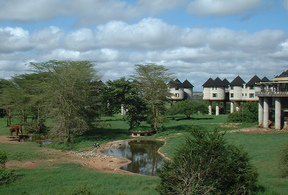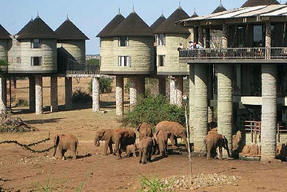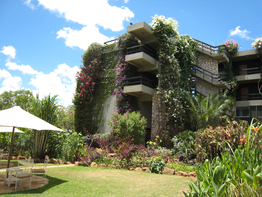Tips for a comfortable, happy and safe visit ...
Code of Conduct ... On Safari
Friends of Conservation, London, SW1W 8NS
Friends of Conservation, London, SW1W 8NS
See also Wildlife Park Rules
The National Parks and Reserves of East Africa were established to provide protection for a large diversity of species and habitat. Please ensure the minimum of disturbance and disruption to the wildlife and the environment.
- Unnecessary noise can startle and disturb wildlife. Radios are forbidden in the Parks and Reserves.
- Wild animals always have the right of way.
- the animals are wild, so do not leave your vehicle or expose yourself to danger by sitting or standing on the roof or roof-rack, or even by hanging out of the windows.
- Respect the privacy of the animals and discourage drivers from moving too close. Keep a distance of 20 metres and refrain from following leopard, cheetah or lion when they move away.
- Only five vehicles should be viewing a cheetah, lion or leopard at any one time. Do not stay for more than 10 minutes.
- Cheetah are daylight hunters When surrounded by vehicles, they are unable to hunt and the tracks created often expose their cubs to unnecessary danger.
- Scenery and habitat are important. Respect the land and avoid damaging the vegetation.
- Litter can seriously injure and kill animals and should be kept in your vehicle until you can dispose of it properly. This applies especially to film cases, cigarette packets, drink cartons and lunch boxes.
- A lit cigarette, carelessly disposed of, can cause huge and uncontrollable fires, leading to the death and suffering of animals.
- Do not collect or remove bones, skins, horns, teeth, hair, feathers, eggs or shells. These all play a part in the natural ecosystem and should be left where they lie.
- The dietary requirements of these species have been established through evolution and habitat, and should not be interfered with. Do not feed the animals, as this upsets a fragile and precious balance leading to unnecessary dependency on man's handouts.
WHEN PREPARING A SAFARI
By: James Sindiyo, Senior Warden, Masai Mara National Reserve, 1996
By: James Sindiyo, Senior Warden, Masai Mara National Reserve, 1996
|
Time
|
Allow plenty of time to enter and leave the Reserve. All gates open at 06.30hrs and close at 29.00hrs. No exceptions can be made.
|
|
Driving Off Road
|
Keep to the roads or well-defined tracks and do not cut, break or drive over vegetation. Such actions will destroy the valuable vegetation. The scenery and habitats are as important as the animals.
THIS OFFENCE CARRIES A SEVERE PENALTY |
|
Animal Disturbance
|
|
|
Harassment
|
|
|
Speed
|
|


